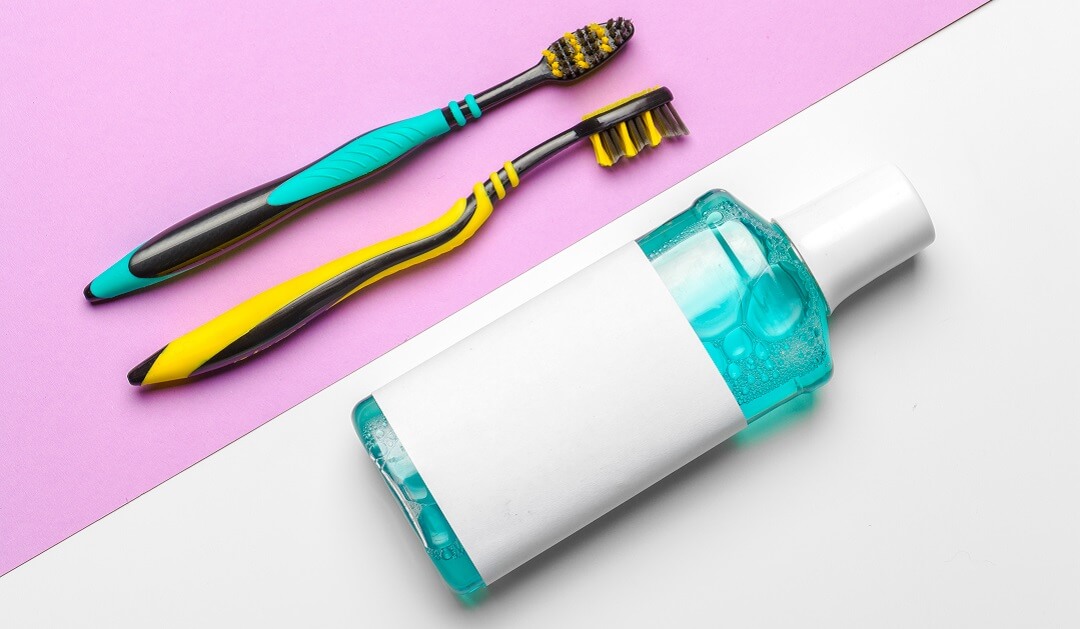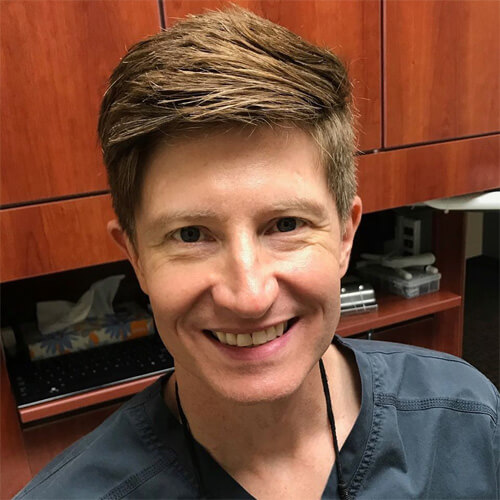Halitosis, commonly known as bad breath, is something everyone worries about at one point or another. If you just finished a wonderful meal loaded with garlic or onions, chances are you know that your breath is far from pleasant. However, bad breath does not just come from eating odor-prone foods. Chronic bad breath affects as many as 25 percent of the population and many people are unaware of their bad breath.
The good news is there are things you can do to determine if you suffer from bad breath. In addition, the caring professionals at Soundview Family Dental are here to help diagnose conditions that can contribute to bad breath, treat these conditions, and help you prevent bad breath in the future.
Key Takeaways
- Traditional tests: breathe into hand, lick wrist, scrape tongue, floss back teeth, do taste test.
- Professional tests: halimeter measures VSC levels, organoleptic sniff test by dentist.
- Sensory adaption makes self-assessment challenging due to nose-mouth connection.
- Causes: poor oral hygiene, gum disease, food/drink choices, smoking, dry mouth, medical conditions, medications.
- Soundview Family Dental diagnoses/treats conditions contributing to bad breath, provides preventive care for fresh breath.
Do I have bad breath?
Bad breath is something that we all experience at one point or another. There will be times when you can expect bad breath, such as after a meal loaded with garlic or onions. If brushing your teeth isn’t an option, you may reach for that pack of minty gum to keep the garlic at bay. But, how do you know if you have bad breath at other times? What if you suffer from chronic bad breath? The good news is there are some ways to tell if you are suffering from bad breath and might not know it.
Traditional ways
While you can always ask a friend or family member you trust if your breath is far from fresh, there are some ways you can test your breath on your own. It includes:
- Breathe into your hand – Breathing into a cupped hand and smelling the air left behind is one standard method to test your breath. However, this isn’t always effective. However, with COVID and regular mask-wearing, it may be easier to smell bad breath yourself.
- Lick your wrist – While this might sound a bit strange, it is an effective way to test your breath. Lick your wrist and allow a few seconds for it to dry before sniffing.
- Scrape your tongue – Using a toothbrush or a tongue scraper, scrape the surface of your tongue and smell the scraper.
- Floss your back teeth – Floss between your back molars and then smell the floss. This can often reveal odors you may not normally notice.
- The taste test – Do you experience a bad taste in your mouth? For example, can you taste the onions from your lunchtime burger hours later? Chances are, if you can taste something hours later, people can smell it on your breath as well.
Professional tests
If you are still unable to determine if you have chronic bad breath by trying the at-home tests, there are tests your dentist can do during an office visit that can help identify bad breath. These include:
- Halimeter test – This specialized test measures volatile sulfur compound (VSC) levels in your mouth. VSCs result from bacterial overgrowth in the mouth or digestive tract and this overgrowth can contribute to bad breath.
- Organoleptic method – For this test, your dentist essentially performs a sniff test. The dentist will have you exhale through a straw to avoid dilution by surrounding air. As you exhale, your dentist evaluates your breath.

Why is it challenging to smell your own breath?
Have you ever had someone tell you your breath smells bad, but you are unable to smell it? You are not alone. In fact, research suggests that your brain works against you through a process called sensory adaption. Your mouth and nose are connected through an opening in the back of your throat. Because of this, your nose has a unique connection to your breath. Sensory adaptation essentially means that, because of this connection, your nose filters out the odor it senses coming from your breath because it is already accustomed to that odor and does not find it offensive.
Causes of bad breath
If you experience bad breath on a regular basis, it is important to know what factors may be contributing to your bad breath. While you already know that certain foods and spices, such as garlic or onions, can contribute to bad breath, there are many more common causes. These potential causes of bad breath include:
- Your oral hygiene routine – The American Dental Association recommends brushing your teeth at least twice a day and flossing at least once. This helps remove decaying food particles, bacteria, and plaque on the surface and between your teeth. If these particles are not removed, they can contribute to bad breath.
- Gum disease – When your oral hygiene routine does not remove plaque and bacteria, it can build up and cause gum disease. You may notice pockets of tartar forming between your gums and your teeth. These pockets can trap food and bacteria and contribute to bad breath and other dental concerns.
- What you eat and drink – While you know about garlic and onions, other spices and foods can also contribute to bad breath. Some common beverages associated with bad breath include coffee and alcohol.
- Smoking – Tobacco use contributes to a unique smell when it comes to your breath, but smoking can also increase your risk of gum disease, thus increases the chances of having bad breath.
- Dry mouth – If you suffer from Sjogren’s Syndrome or other conditions that cause dry mouth, you have a higher chance of suffering from bad breath. Your saliva works as a natural cleaner in your mouth, washing away food particles. When you suffer from dry mouth, these particles remain and increase your risk of odor.
- Medical conditions or medications – Certain medical conditions and medications can also contribute to bad breath. For example, those with gastroesophageal reflux disease (GERD) experience regular stomach acid reflux, contributing to bad breath. Certain medications can also produce odors as they break down, releasing these chemicals into your breath. People with diabetes experiencing ketoacidosis will experience a very distinctive and unpleasant breath odor.

Treatment and prevention
The good news is there are things that you can do to treat bad breath, as well as help prevent it from happening in the first place. Consider trying these tips to address your bad breath:
- A good oral hygiene routine – Be sure to brush and floss your teeth at least twice a day. If you suffer from bad breath, consider brushing and flossing after every meal to eliminate food and bacterial buildup that can contribute to bad breath.
- Chew sugar-free gum – Chewing sugar-free gum can help to freshen your breath when you cannot brush your teeth.
- Don’t forget your tongue – Oftentimes, the tongue is responsible for bad breath. Consider using a tongue scraper every time you brush your teeth to help remove bacteria on your tongue.
- Attend regular dental cleanings – Professional dental cleanings help remove plaque and tartar buildup that you may not be able to do with regular brushing and flossing. This buildup can contribute to chronic bad breath, as well as increase your risk of gum disease.
- Address dry mouth – If you experience dry mouth, consider sucking on sugar-free candy or chewing gum throughout the day to help stimulate saliva. There are also over-the-counter mouthwashes that can help as well.
- Quit smoking – Smoking is a big contributor to bad breath, as well as health issues. If you are unable to quit, consider brushing your teeth after smoking.
If you don’t find success with these home measures, the team at Soundview Family Dental is here to help you address chronic bad breath. We will work with you to address any underlying dental concerns contributing to your bad breath and create an individualized treatment plan that will help you achieve fresh breath again. To learn more about how we can help, contact us online or call our office at (425) 562-6360 today to schedule an appointment and let us help you achieve a healthy and fresh-smelling smile.


